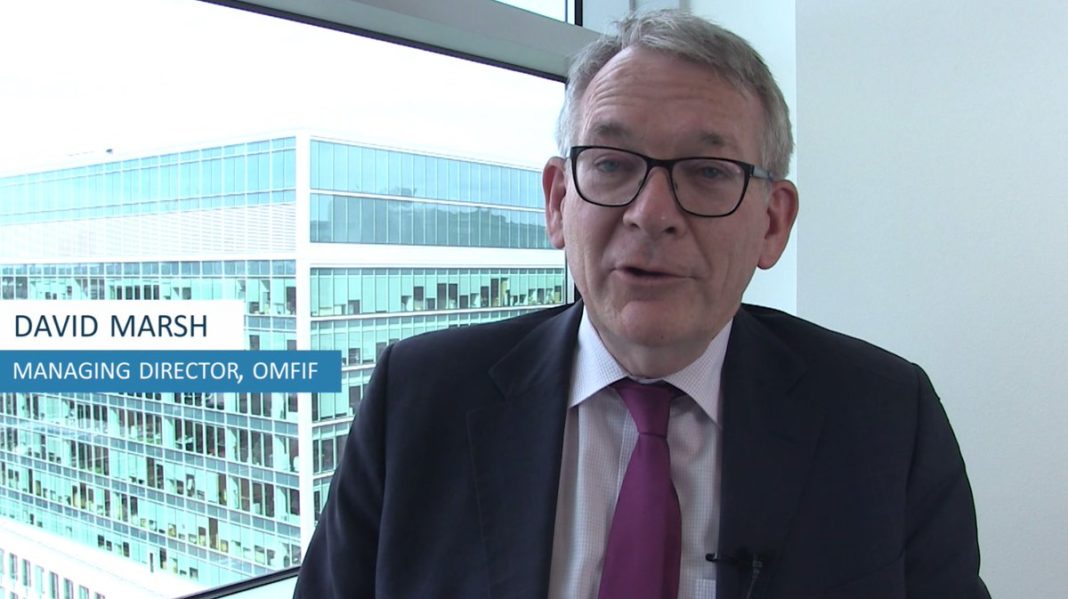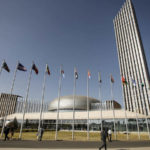By David Marsh
China appears to be preparing for an increasing role in an expanded ‘global safety net’ to assist countries that run into balance of payments difficulties, in concert with the International Monetary Fund.
This policy line, which could gain momentum after the quinquennial Communist party congress that started yesterday in Beijing, emphasises China’s wish for a multilateral approach on the world stage in pronounced contrast to the unilateralism of the US administration under President Donald Trump.
The Chinese moves, which could include wider currency swap arrangements among central banks and other official financial institutions, form part of several years of manoeuvrings aimed at overcoming many countries’ reluctance to seek financial help from the Fund. The stigma attached to IMF borrowing stems in large part from the bitter legacy of the Fund’s Asia policies – widely criticised as over-harsh – during the Asian financial crisis in 1997-98.
By backing IMF-strengthening multilateral action while at the same time showing it can advance with its own initiatives if needed, China is following multiple aims. First, it wishes to build behind-the-scenes influence on international financial organisations. Second, it is keen to assure that potentially vulnerable emerging economies can withstand possible liquidity shortages flowing from higher US interest rates. Third, it wants to protect its own position as one of the world’s largest creditors in case of payments difficulties among debtor countries troubled by US monetary ‘normalisation’.
Fourth, Beijing aims to buttress the renminbi’s international role without questioning the dollar’s current primacy. Reinforcing a network of international swap arrangements under which renminbi can be exchanged for local currencies can serve the purpose of strengthening countries’ reserve positions. It can also provide back-up renminbi liquidity needed in coming years to help settle foreign nations’ trade, investment and capital market obligations denominated in the Chinese currency.
Fifth, China needs to adapt its planning to a possible sharpening of anti-Beijing action from the US in both trade and investment. Such moves, which would heighten fears of world protectionism, would reflect Washington’s perception that China is gaining unfair advantages from international trading and financial arrangements. As well as castigating China’s large bilateral surplus on US trade, Washington in intensely suspicious of China’s policies on the Belt and Road initiative financing Eurasian trade and transport links, alleging that these discriminate against US companies and interests.
As another prime example, news emerged last week that the Trump administration is demanding the World Bank reconfigures lending to China as the condition for a capital rise. Washington claims China undercuts western policies and gains undue influence by using US-backed World Bank money to expand its own lending to diverse emerging market economies. Chinese officials reject the charge, saying it shows the US does not understand how the World Bank works.
In its overarching policies, China is demonstrating that it is pursuing a variety of compatible options. Washington habitually claims that China is trying to circumvent multilateral financial organisations by building alternatives outside the Bretton Woods institutions – the Fund and Bank set up at the seminal 1944 conference. Alongside its backing for the Beijing-domiciled Asian Infrastructure Investment Bank and the Shanghai-based New Development Bank – where the US has no shareholding in either bank – China wants to demonstrate that it is one of several countries trying to make the IMF more relevant in international finance.
The IMF executive board has been discussing for more than a year plans for a short-term liquidity facility through the Fund’s own swap lines under which the organisation could provide hard currency back-up to reinforce countries’ foreign exchange reserves in case of possible externally generated monetary shocks. The ‘short-term liquidity swap’ would be a more flexible credit line than the Fund’s existing panoply of lending instruments and would aim to meet the needs of generally well-run countries facing continuous low-level liquidity pressures rather than sudden outflows for internal or external reasons.
Five key members of the Association of Southeast Asian Nations – Indonesia, Malaysia, the Philippines, Singapore and Thailand – have been targeted as potentially participating in the IMF swap arrangements. The relatively large number and the presence of well-off Singapore are intended to overcome debtor countries’ reservations over stigmatisation.
Preparations for the swap line activation have been put on hold, partly because of a cooling of interest from both the US and Asean side. However, this could be revived for important symbolic reasons ahead of the next IMF-World Bank annual meeting, in Asia for the first time for six years, in Bali in October 2018.
Speaking in Washington at a G30 seminar on Sunday, at the close of this year’s IMF-World Bank meetings, Zhou Xiaochuan, governor of the People’s Bank of China, highlighted Beijing’s role in international economic governance, although he said the domestic agenda took precedence. He termed renminbi swap agreements an unexpected outcome of the 2008 financial crisis. He added: ‘China supports the further development of a global safety net. In our view, the global safety net may be more efficient than bilateral arrangements.’
Zhou is expected to stay at the PBoC until his third five-year term ends in March 2018, when he will be 70. The Chinese authorities seem likely to choose as Zhou’s successor a person with political as well as financial skills. Jiang Chaoliang and Guo Shuqing, respectively governor of the provinces of Jilin and Shandong, alternate member and member of the Communist party’s central committee, have both been rumoured as possible successors.
David Marsh is Managing Director of the Official Monetary Financial Institutions Forum (OMFIF).








